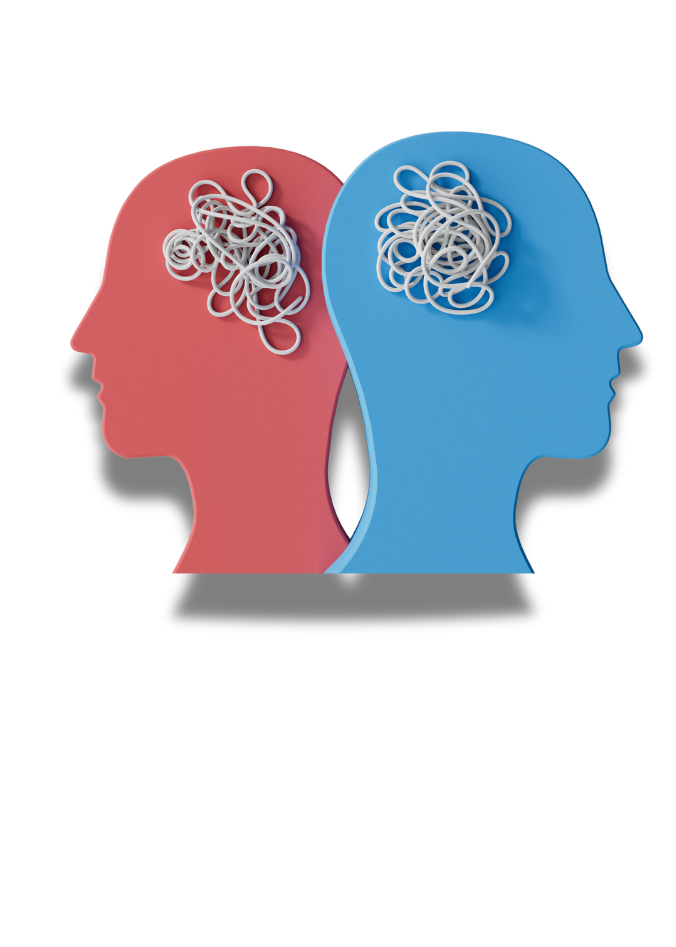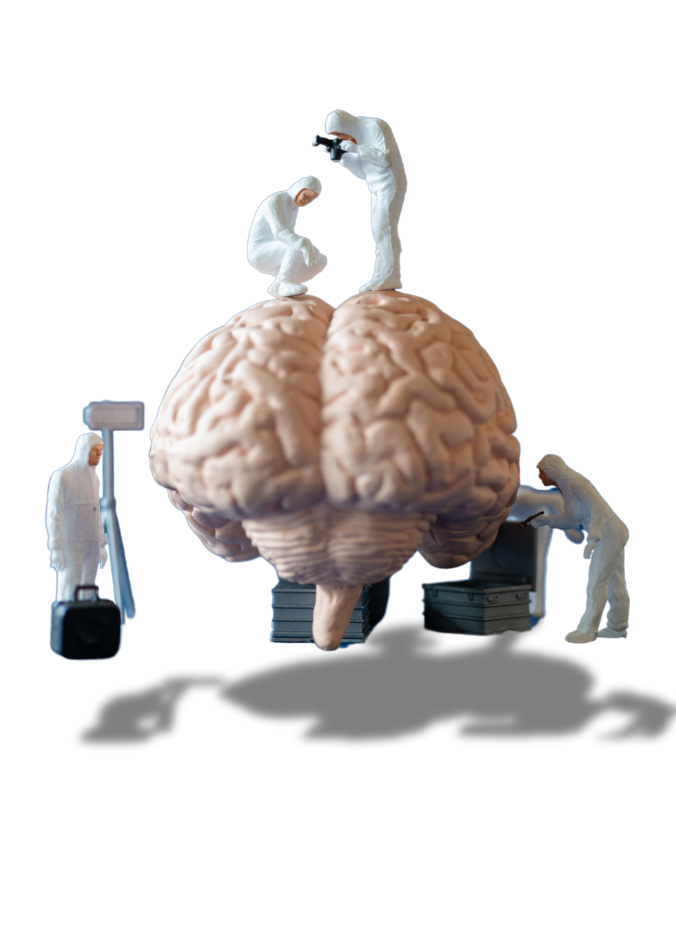
Your brain is the most powerful tool in your leadership arsenal. But is it working for you—or against you?
Confidence isn’t just a personality trait—it’s a skill leaders can build. Nathalie Plamondon-Thomas reveals how it starts with understanding how the brain processes change.
Your brain is the most powerful tool in your leadership arsenal. But is it working for you—or against you?

Confidence isn’t just a personality trait—it’s a skill leaders can build. Nathalie Plamondon-Thomas reveals how it starts with understanding how the brain processes change.

Why Confidence Matters for CEOs and Business Leaders
Confidence isn’t just about how you present yourself—it determines the decisions you make, the risks you take, and how effectively you lead in uncertain times. In a world where leaders must juggle rapid change, economic shifts, and AI-driven disruptions, confidence isn’t optional. It’s a competitive advantage.
But here’s the thing: There has never been a time when things are moving as fast as they are today. Leaders are juggling multiple challenges at once. And the one thing that is constant in their world? Change.
The Brain vs. Change: Why We Resist It

Our brain is hardwired to hate change. We create synapses that connect neurons, forming neural pathways that the brain recognizes. The brain generalizes and puts things in neat little boxes. But when something new happens that doesn’t fit in a box, the brain panics.
This panic triggers a complex alarm system involving the amygdala, anterior cingulate cortex, and insula. Suddenly, 1,400 chemicals flood the bloodstream, filling us with cortisol, making us feel overwhelmed and unresourceful—like getting punched in the face. That’s prefrontal cortex overload. If we don’t control it, our brain controls us.


The Accumulation Effect: Why Stress Doesn’t Just Go Away
Think about a CEO managing a merger. First, there’s excitement. Then, the challenges pile up—team restructuring, culture clashes, unexpected legal roadblocks. Each challenge adds to the stress, and before long, decision fatigue sets in. The accumulation doesn’t just disappear—it erodes confidence, clarity, and performance.”
Now, leaders are facing even more uncertainty—from economic shifts and new tariffs to AI disruptions and market fluctuations. But this isn’t the first time you’ve had to navigate high-stakes change. Think back to the pandemic: businesses had to shift overnight, adapting to shutdowns, new regulations, and relentless uncertainty. That stress accumulated then, and it’s still accumulating now.
And with each new challenge, the pressure only builds. It’s easy to feel like you’re always catching up, always reacting.
But what if you could train your brain to embrace change instead of fearing it? Here’s how.
The Brain: Enemy or Ally?

The brain can either be the enemy of performance or its best ally. We have 7,000 billion neural connections in the adult brain. The internet has 100 billion— our brain has 70 times more connection than the internet. Out of those, we generate 50,000 to 80,000 thoughts per day, and 70% are negative. After the pandemic, recent studies suggest that the number climbed to 80%.
We trash-talk ourselves constantly. And 95% of those thoughts are repetitive. We don’t talk to our friends like that—”Oh, you look terrible in those jeans! Do you want to start a business? It’s never gonna work!”—but we do it to ourselves.

The Cost of Negative Thoughts
All this negative self-talk leads to wasted time—about 2.5 hours per day lost in emotional drama. Over a year, that’s 600 hours. If an organization has 100 employees, they lose around $1.8 million annually in wasted emotional energy.
Annually in wasted emotional energy.
Hours per day lost in emotional drama.
Logical vs. Unconscious Mind

The logical mind can handle 5–9 pieces of information at a time. That’s why, when you’re driving to a new place, music playing, windows down—you instinctively turn the music down when looking for house numbers. Why? Because adding one more piece of information is too much for the logical mind.
Meanwhile, the unconscious mind processes 2.3 million pieces of information per second. It’s like a personal assistant, writing down everything we say and making it happen.
The problem? You may be unknowingly programming your unconscious mind with negativity. Every time you say, ‘I’m so tired’ or ‘I’m so stressed,’ your brain treats it as a command. It listens—and makes it a reality


Rewiring Your Brain: Two Simple Techniques
Want to shift that? Here’s a two-step technique:
1. Acknowledge and Reframe – Instead of saying, “I’m so stressed,” say, “I used to be stressed.” This signals to the brain that something is changing.
2. Use Progressive Statements – Follow it up with, “I’m in the process of learning how to manage stress better. ”Telling yourself, “I’m rich” when you’re in financial struggle won’t work. Your brain will reject it. But saying, “I’m in the process of improving my finances” keeps the door open for change.
Leading with Confidence: The Power of Mindset for CEOs and Leaders
Success isn’t just about external achievements—it’s about managing your internal dialogue. And that doesn’t stop when you leave the office. Imagine coming home from a long day, exhausted, making dinner, running through all the problems in your head. Your child calls for you. Do you snap, ‘WHAT?!’ or do you take a deep breath, turn around, and say, ‘Yes, sweetie, what can I do for you?'”
That’s what mastering your mindset looks like. It’s about controlling your prefrontal cortex, interrupting the emotional loop, and generating feel-good chemicals instead of stress hormones.
At the end of the day, your brain is your greatest leadership tool. Will you let it hold you back—or train it to work for you? Your ability to lead through uncertainty, make bold decisions, and inspire your team starts with mastering your mindset.
My name is Nathalie Plamondon-Thomas. I’m a confidence expert. And you? You are awesome. Thank you for reading.

ABOUT NATHALIE PLAMONDON-THOMAS
Nathalie Plamondon-Thomas, Certified Speaking Professional, CSP, is a bilingual confidence expert, specializing in performance and change. In addition to being a TEC Speaker, Nathalie is the Recipient of the Peter Legge Philanthropist of the Year Award in 2024, Most Empowering Confidence Coach in North America in 2023 and Canadian Presenter of the Year in 2021. Author of 18 books, including 12 no.1 bestsellers. Endorsed by Tony Robbins, Brian Tracy, Jim Britt & Kevin Harrington from the Shark Tank. Founder and CEO of an academy that provides keynotes, training sessions, and personalized coaching for transformative growth. Inspired over 100,000 audience members internationally in the past two decades. President-Elect on the national board of directors of the Canadian Association of Professional Speakers and received the 2022 and 2023 President’s Awards.




